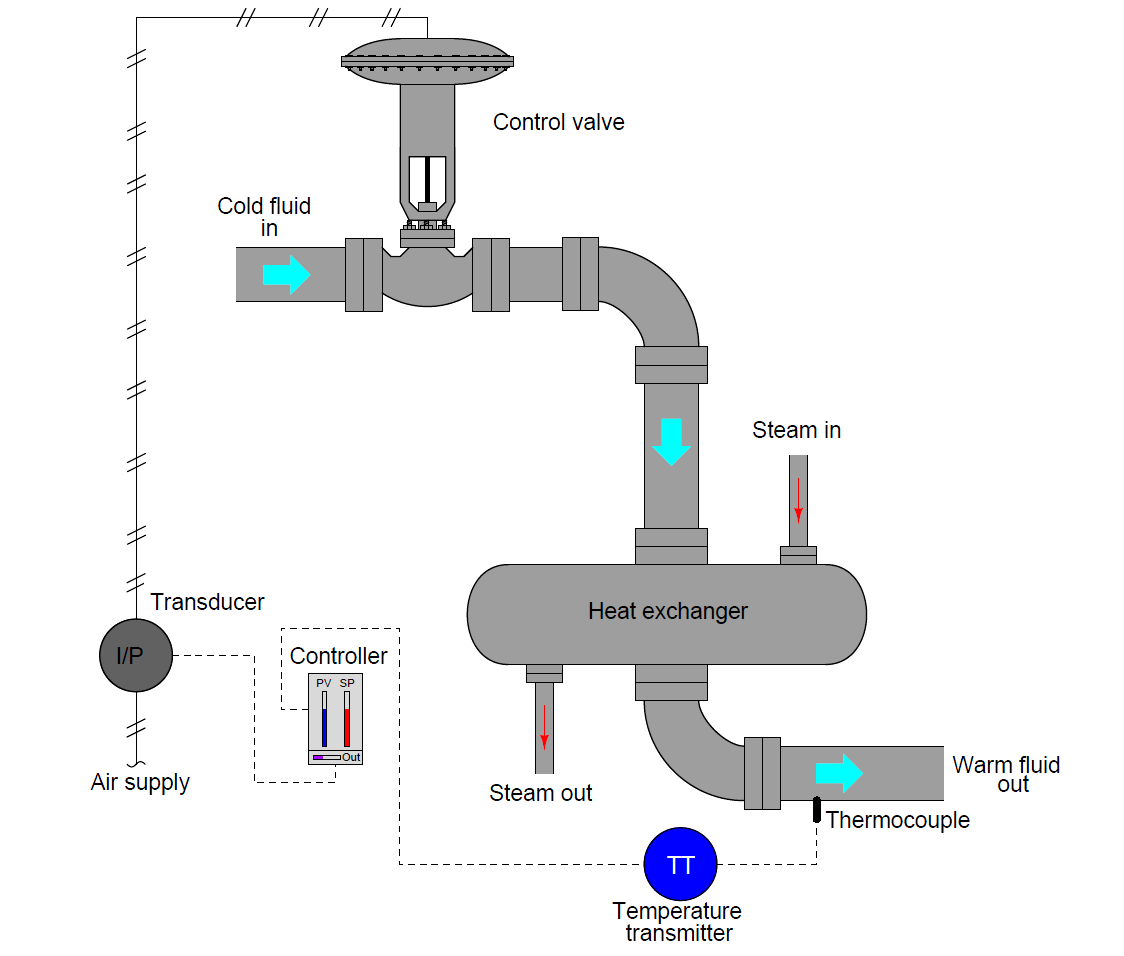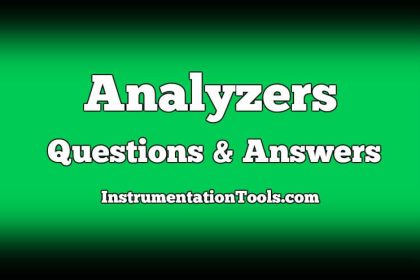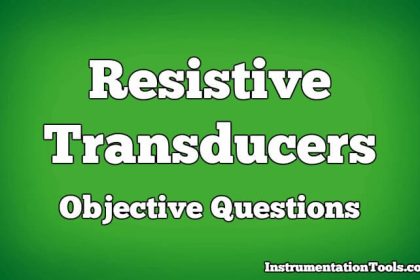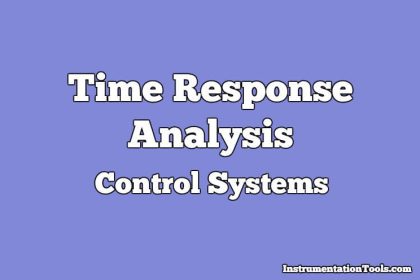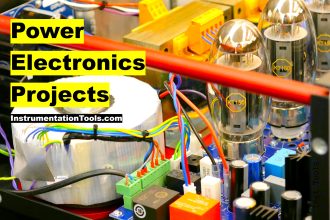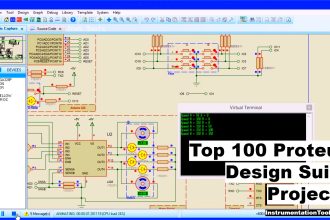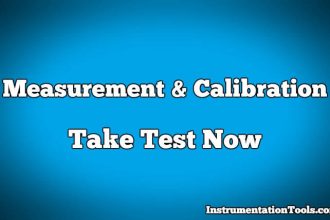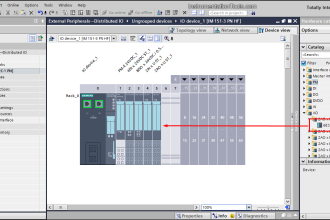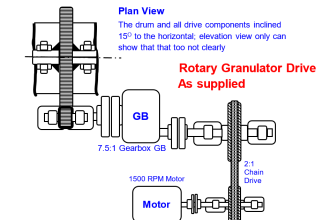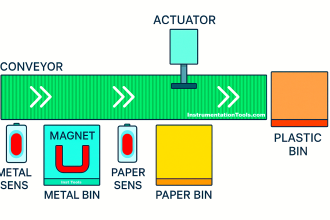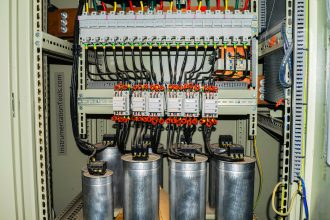Study the basic control loop multiple choice questions (MCQ) and test your technical knowledge on industrial instrumentation concepts.
Control Loops Multiple Choice Questions
Question 1
A basic control loop will consist of:
(A) signal converter, resistor, knob, and control valve
(B) transducer, valve packing, hex-head wrench, and tubing
(C) transmitter, controller, I/P transducer, and control valve
(D) resistor, capacitor, terminal block, and battery
(E) control valve, microprocessor, terminal block, and cables
Answer : C
Question 2
In order for a control loop to work well under a wide range of conditions, it must possess:
(A) Calibration drift
(B) Hysteresis
(C) A very expensive transmitter
(D) Proper documentation
(E) Negative feedback
Answer : E
Question 3
Which of the following is not a “final control element”?
(A) A pressure transmitter
(B) An electric motor
(C) A heating element
(D) A control valve
(E) A servo
Answer : A
Question 4
The purpose of a “shield” wire on an instrument signal cable is to:
(A) Hold a steadier setpoint value
(B) Ensure technician safety
(C) Minimize the possibility of sparking
(D) Protect the cable from corrosion
(E) Minimize electrical noise
Answer : E
Question 5
The most common analog signal standard for industrial process instruments is:
(A) 10 to 50 milliamps DC
(B) 0 to 5 amps AC
(C) 0 to 10 volts
(D) 0 to 20 milliamps
(E) 4 to 20 milliamps DC
Answer : E
Question 6
In a process controller, “output” refers to:
(A) The target value for the measured variable
(B) The DC supply power to the transmitter
(C) The maximum value for the low-alarm point
(D) The command signal to the control valve
(E) The production quota for each work day
Answer : D
Question 7
Identify which of the following is an example of a “primary sensing element”:
(A) I/P transducer
(B) Instrument signal cable
(C) Control valve
(D) Diaphragm
(E) Digital controller
Answer : D
Question 8
Identify the controller’s proper action in the event that the thermocouple suddenly detects a drop in process temperature:
(A) Re-calibrate the temperature transmitter
(B) Move the control valve further open
(C) Completely open the control valve
(D) Move the control valve further closed
(E) Hold the control valve’s position steady
Answer : D
Question 9
In a home heating system, room temperature is the:
(A) Process variable
(B) Setpoint
(C) Inferred variable
(D) Manipulated variable
(E) Error variable
Answer : A
Question 10
When a process controller is in the “automatic” mode,
(A) The output responds to changes in the process variable
(B) The control valve will fail closed
(C) The process variable cannot deviate from setpoint
(D) The controller will automatically generate alarms
(E) The control valve will fail open
Answer : A
Credits : by Tony R. Kuphaldt
Share your feedback on the questions.
